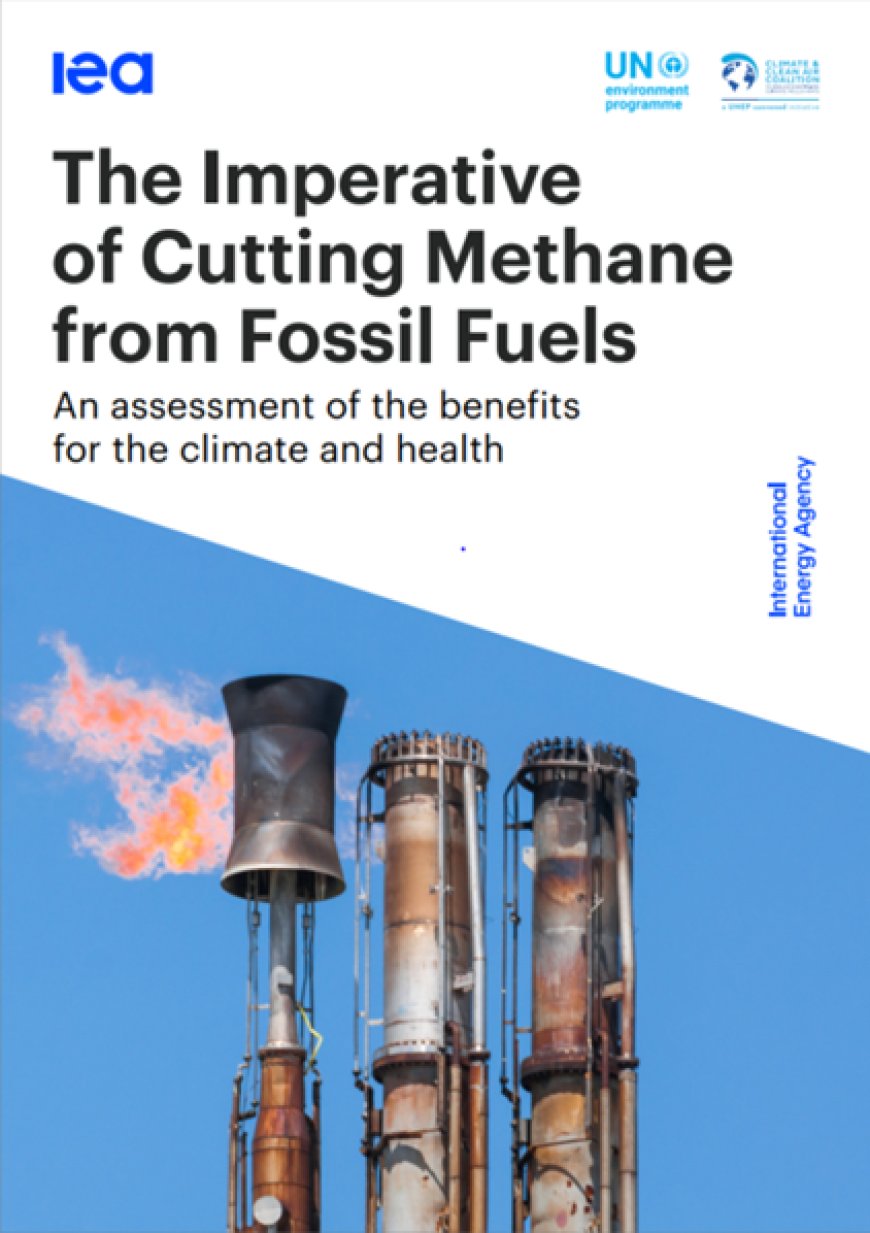The Imperative of Cutting Methane from Fossil Fuels- An assessment of the benefits for the climate and health
The Imperative of Cutting Methane from Fossil Fuels- An ... UNEP

The Imperative of Cutting Methane from Fossil Fuels
Are you sure you want to print? Save the planet. Opt not to print.

Introduction
The UNEP-Convened Climate and Clean Air Coalition (CCAC) and the International Energy Agency (IEA) have published an assessment of the benefits for the climate and health: “The Imperative of Cutting Methane from Fossil Fuels”.
Methane’s Impact on Climate Change
Methane is a powerful climate pollutant that is responsible for around 30% of the rise in global temperatures since the Industrial Revolution. Fossil fuel operations are the second largest contributor to anthropogenic methane emissions, and the majority of these emissions can be abated with existing technology, often at low cost.
The Need for Urgent Action
Despite efforts to scale up clean energy and reduce fossil fuel use, it is not sufficient to reduce methane emissions at the necessary pace and scale to avoid the worst effects of climate change. The report emphasizes the need for targeted actions to tackle methane emissions from fossil fuel production and use.
Sustainable Development Goals
This report aligns with several Sustainable Development Goals (SDGs), including:
- SDG 7: Affordable and Clean Energy
- SDG 13: Climate Action
- SDG 15: Life on Land
SDGs, Targets, and Indicators
1. Which SDGs are addressed or connected to the issues highlighted in the article?
- SDG 13: Climate Action
- SDG 3: Good Health and Well-being
The article discusses the impact of methane emissions from fossil fuel operations on climate change and public health, connecting to SDG 13 (Climate Action) and SDG 3 (Good Health and Well-being).
2. What specific targets under those SDGs can be identified based on the article’s content?
- SDG 13.2: Integrate climate change measures into national policies, strategies, and planning.
- SDG 3.9: By 2030, substantially reduce the number of deaths and illnesses from hazardous chemicals and air, water, and soil pollution and contamination.
The article emphasizes the need for targeted actions to tackle methane emissions from fossil fuel production and use, which aligns with SDG 13.2. It also highlights the benefits for public health that can be achieved by reducing methane emissions, supporting SDG 3.9.
3. Are there any indicators mentioned or implied in the article that can be used to measure progress towards the identified targets?
- Indicator for SDG 13.2: Number of countries with integrated policies, strategies, and plans for climate change mitigation, adaptation, impact reduction, and early warning.
- Indicator for SDG 3.9: Number of deaths and illnesses attributed to hazardous chemicals and air pollution.
The article does not explicitly mention specific indicators. However, progress towards SDG 13.2 can be measured by the number of countries that have integrated policies, strategies, and plans for climate change mitigation. Progress towards SDG 3.9 can be measured by tracking the number of deaths and illnesses attributed to hazardous chemicals and air pollution.
4. SDGs, Targets, and Indicators
| SDGs | Targets | Indicators |
|---|---|---|
| SDG 13: Climate Action | 13.2: Integrate climate change measures into national policies, strategies, and planning. | Number of countries with integrated policies, strategies, and plans for climate change mitigation, adaptation, impact reduction, and early warning. |
| SDG 3: Good Health and Well-being | 3.9: By 2030, substantially reduce the number of deaths and illnesses from hazardous chemicals and air, water, and soil pollution and contamination. | Number of deaths and illnesses attributed to hazardous chemicals and air pollution. |
Behold! This splendid article springs forth from the wellspring of knowledge, shaped by a wondrous proprietary AI technology that delved into a vast ocean of data, illuminating the path towards the Sustainable Development Goals. Remember that all rights are reserved by SDG Investors LLC, empowering us to champion progress together.
Source: unep.org

Join us, as fellow seekers of change, on a transformative journey at https://sdgtalks.ai/welcome, where you can become a member and actively contribute to shaping a brighter future.







